He/him. Early 30's. Rabbits are important. Link: About me.
Don't wanna be here? Send us removal request.
Text

came face to face with the smallest divine being in my garden this morning
11K notes
·
View notes
Text
I’m not sure exactly how to articulate it but—there is this bizarre base assumption i see from people discoursing about children’s media, and that’s the assumption that children are somehow unfamiliar with negative emotions. Like, maybe you’ve managed to completely forget your entire life before you turned eighteen, but kids spend a lot of time being hurt, and scared, and angry. A lot of people had terrible fucking childhoods, and a lot of kids are having terrible fucking childhoods right now. When i was a child, and i read books where bad things happened to kids, that was in no way shocking to me, i already knew bad things happened to children. It made me feel more connected to those stories, not less, and it made it more impactful when those child characters overcame it all in the end. That’s important for children. A lot of them are in desperate need of a little hope, and they aren’t going to get it from nothing stories with no conflict. They put conflict in children’s media for a reason
Also i see some of you handwringing over child protagonists going through, like, the most basic hero’s journey. Please, for the love of god, realize that you as an adult are going to understand children’s media differently than the actual kids it’s intended for. Because you’re all grown up now, you aren’t going to be able to relate to a child protagonist. You’re going to see a child in danger. The children the story is meant for are going to see a kid like them who is able to face hardship and triumph
17K notes
·
View notes
Text

Black-tailed jackrabbit By: Jeff Foott From: Éditions Rencontre Cards 1978
83 notes
·
View notes
Text
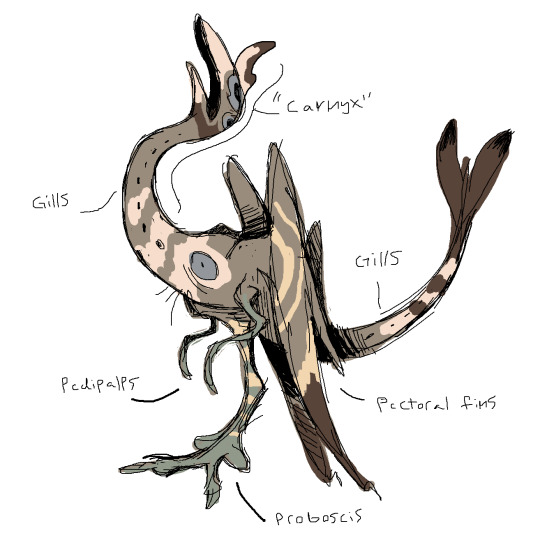
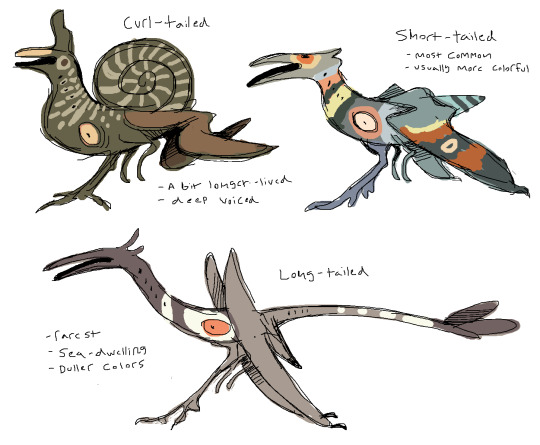
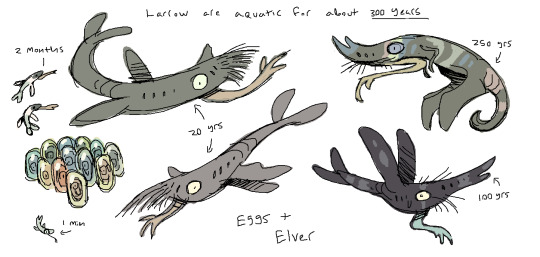
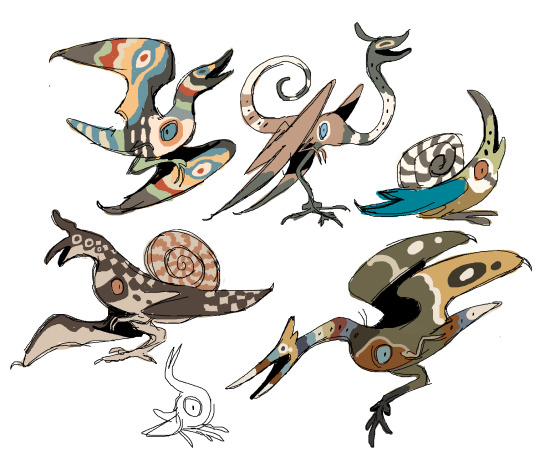
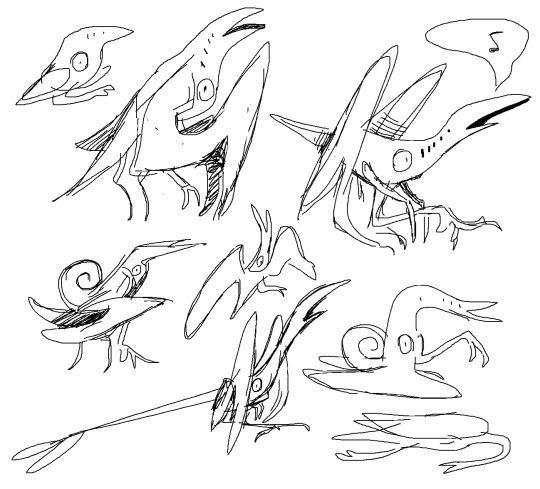
Assorted sketches of the Larrow (colloquially, pipers or alicantors), tiny, colorful alien people with a grasping proboscis and a flexible crest that turns them into something like a living musical instrument. They talk to each other in complex songs and, while very competent with non-larrow languages, they near always sound like they're singing musical theatre when speaking human. They spend most of their life - several hundred years - in a non-speaking, fish-like larval state that the adults never socialize with and don't remember being, a subject of much philosophical debate in their culture and in the wider discussions on how sapience should be defined.
while they superficially resemble birds, the closest earth animal anatomically is probably a treehopper:

3K notes
·
View notes
Text

Who would win? The thousand pound flying meathook t-rex, or… monkey with a stick?
25K notes
·
View notes
Text

Snowshoe hare By: Charlie Ott From: Éditions Rencontre Cards 1978
498 notes
·
View notes
Text
1 note
·
View note
Text
I rambled about this in tags on another post but I can’t emphasize enough how only focusing on large-scale issues WILL lead to hopelessness & burnout. Activism must include small-scale, achievable works. If you don’t have something you can get your hands around and look at directly, despair will eat you alive.
14K notes
·
View notes
Text


bigwig and woundwort from watership down, the classic story where absolutely nothing violent happens :)
materials: posca markers
1K notes
·
View notes
Text








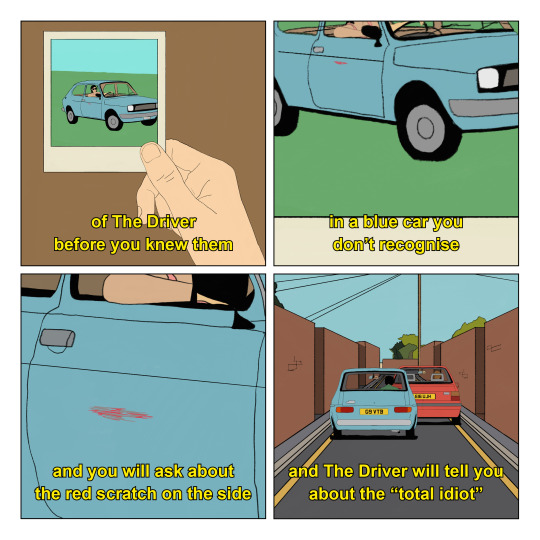



“The Driver” by Jordan Bolton
My first book ‘Blue Sky Through the Window of a Moving Car’ is out now! Order it here - https://smarturl.it/BlueSky
50K notes
·
View notes
Text

Wit konijn. Jan Mankes (1889-1920)
via
701 notes
·
View notes
Text
im not even the type of guy to go "actually it's frankenstein's MONSTER" because a painting by rembrandt or picasso or any other artist is often called "a rembrandt" or "a picasso" as shorthand. so in this respect frankenstein's monster can be considered "a frankenstein"
83K notes
·
View notes


